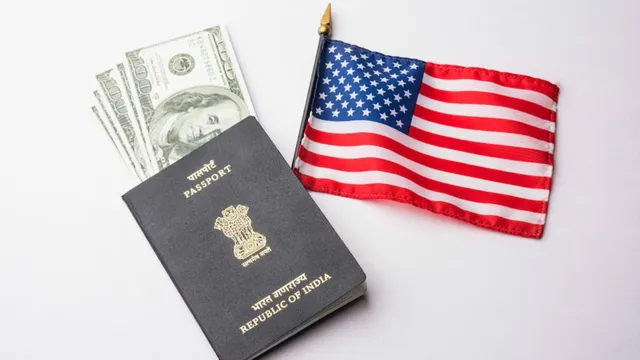The H-1B visa, an essential instrument for overseas skilled professionals in the US, is on the verge of radical change. The Department of Homeland Security (DHS) has now put forward a proposal to substitute the existing random lottery system with a “weighted selection process” under which candidates would be selected in a manner that offers a preference for skill and pay. The step, if taken, is sure to have a deep impact, especially on the Indian professionals who are the biggest recipients of the H-1B program.
The Proposed Change: From Random to Weighted Choice
Today, the H-1B visa, limited to 85,000 per year (with 20,000 for Master\’s recipients), is distributed by random lottery when there is more demand than supply. The system is equal for all eligible registrations, irrespective of the applicant\’s merits or the employer\’s pay offered.
The DHS proposal, which was submitted to the Office of Information and Regulatory Affairs just now, would employ a weighted system. Although the details are still coming out, the overall concept is to assign more weight to such factors as higher pay, higher degrees (particularly PhDs), and special skills. This is a move in the direction of a merit-based immigration policy, intended to make sure H-1B visas would go to the “best and brightest” and to more securely ensure foreign workers\’ wages.
It is not the first time such a proposal has been put forward. A similar rule had previously been under consideration in the last Trump administration but was later dropped. But the new proposal shows a deliberate attempt to move away from the existing lottery.
DON'T MISS
How It Will Impact Indian Candidates
Indian citizens have been the prime beneficiaries of H-1B visas and have received the lion\’s share of approved petitions every year. Therefore, any change in the process will have a very significant impact on their chances.
-
More Competition for Beginning Positions: The emphasis on high pay and sophisticated skills would drastically shrink the number of chances for initial professionals, especially new graduates from Indian universities or people with little experience. Firms that have depended on lower-cost H-1B labor, including certain outsourcing companies, would have their business models disrupted.
-
Advantage for Highly Educated and Highly Remunerated Experts: On the other hand, Indian experts possessing higher-level degrees (particularly in areas of STEM), specialist knowledge, and enhanced provision of remuneration will have a greater opportunity to increase their prospects of being selected significantly. This may favor seasoned IT experts, researchers, and specialists.
-
Indian Talent Demand Shift: More focus on higher pay could lead to the U.S. companies resorting to India for higher-skilled and higher-level employees, thus pushing the average Indian H-1B recipient\’s salary up.
The Road Ahead
The rule is under consideration, and public comment is expected. When it will be implemented for future H-1B rounds is uncertain, but it will not affect the current FY 2026 cap, which is already met. Its success will be in the hands of public opinion, political will, and perhaps the courts.
This planned transition is a significant policy shift that can redefine the face of high-skilled immigration into the U.S. and redefine Indian professionals\’ access to these highly coveted visas.
